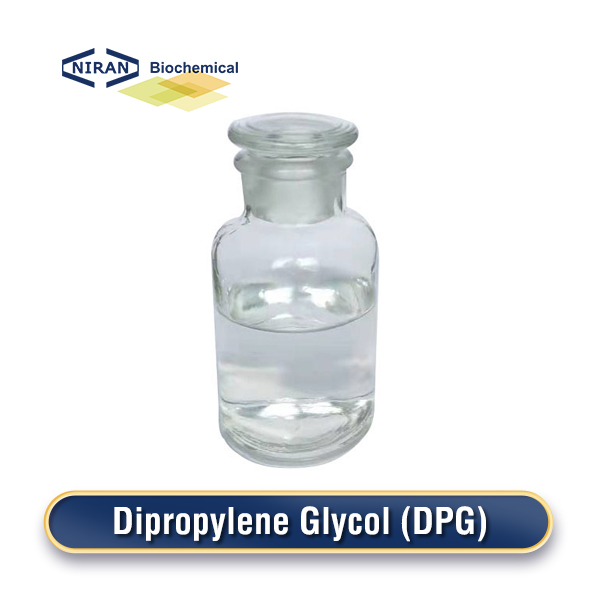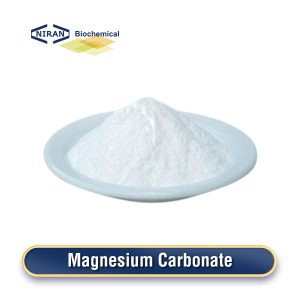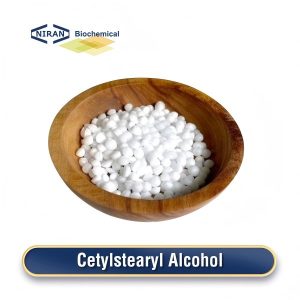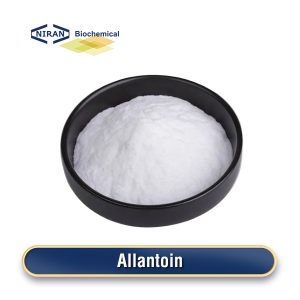Dipropylene Glycol (DPG)
- CAS Number: 25265-71-8
- Chemical Formula: C6H14O3
- MOQ: 1000KG
- Shelf Life: 2 years
- Synonyms: Oxydipropanol, Dipropylenglykol
Product Description
What is Dipropylene Glycol?
The liquid dipropylene glycol (DPG) is colorless, almost odorless, hygroscopic, and highly soluble in water. It serves as a solvent, humectant, and carrier fluid in industries such as cosmetics, personal care, pharmaceuticals, and industrial applications. DPG is widely used in perfumes, antifreeze, and hydraulic fluids due to its low volatility and high compatibility with organic compounds.
Preparation Method
DPG is a by-product of Propylene Oxide (PO) hydrolysis during Mono Propylene Glycol (MPG) production. The process involves:
- Hydration of Propylene Oxide – PO reacts with water under controlled conditions to yield a mixture of MPG, DPG, and Tripropylene Glycol (TPG).
- Fractional Distillation – The mixture is separated based on boiling points, with DPG collected as an intermediate fraction.
Related parameters
| Item | Standard |
| Appearance | Clear transparent liquid, odorless |
| Boilting Point | 90-95 °C1 mm Hg |
| Density | 1.023 g/mL at 25 °C(lit.) |
| Vapor Density | 4.6 (vs air) |
| Vapor Pressure | <0.01 mm Hg ( 20 °C) |
| Flashing Point | 280 °F |
| Sensitive | Hygroscopic |
| Refractive Index | n20/D 1.441(lit.) |
| Water Solubility | Miscible |
| Stability | Stable |
Recommended dosage of Dipropylene Glycol
| Applications | Dosage |
| Personal Care & Cosmetics | 1%-10% |
| Fragrance & Perfumes | 5%-50% |
| Industrial Applications | Varies based on formulation |
| Pharmaceuticals & Food Additives | Up to 10% (depending on regulations) |
Dipropylene Glycol has wide range of uses
Personal Care & Cosmetics
DPG is widely used as a humectant, solvent, and carrier in skincare products, lotions, deodorants, and hair care formulations. It helps dissolve active substances, promotes moisture retention, and improves product texture.
Fragrance & Perfume Industry
DPG acts as an effective fixative, stabilizing and prolonging the fragrance release in perfumes, body sprays, and air fresheners. Its excellent solubility makes it ideal for blending essential oils and aromatic compounds.
Industrial Applications
In industrial formulations, DPG is used in antifreeze, hydraulic fluids, and heat transfer fluids due to its low toxicity, high boiling point, and good thermal stability. It is also utilized in resins, coatings, and plasticizers.
Pharmaceuticals & Food Additives
DPG serves as a solvent and stabilizer in pharmaceutical formulations, helping dissolve active ingredients. In food-related applications, it is sometimes used as a carrier for flavorings and additives, subject to regulatory approval.
User asked question
Q: Are propylene and dipropylene glycol interchangeable?
A: No, while both are glycols, Dipropylene Glycol (DPG) has a higher molecular weight and lower volatility than Propylene Glycol (PG). This makes DPG more stable, less drying, and less likely to evaporate, which is why it’s often preferred in cosmetics, fragrances, and certain industrial applications.




